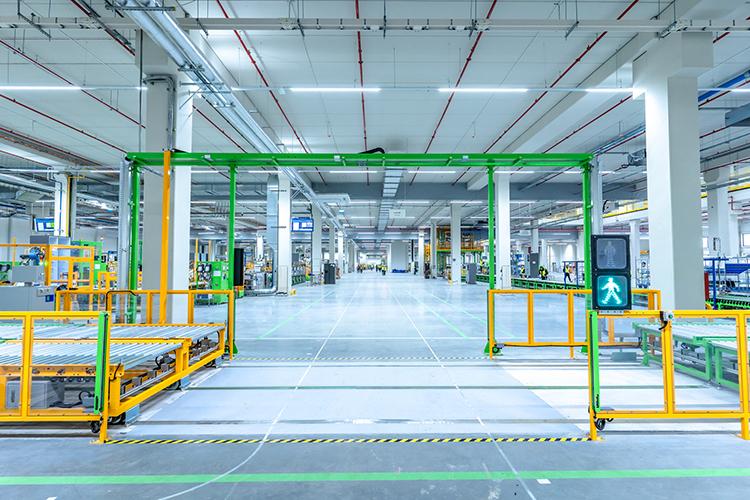Panattoni completes Samsung manufacturing plant in Wronki
Panattoni has completed the development of a modern factory in Wronki for Samsung. With the new manufacturing and warehouse space, the company will considerably increase the production capacity of the already-operational household appliance factory.
“The Samsung factory completion makes a perfect ending for 2023, which was dominated by the effects of nearshoring and the re-industrialisation that this entails. Around a third of the industrial space delivered in Poland over the last twelve months was for the use of manufacturing. The world’s leading companies appreciate Poland’s central location, which not only allows them to reach customers all across the continent, but also gives them access to skilled labour and well-developed infrastructure,” comments Marek Dobrzycki, the Managing Director of Panattoni.
The fact that the factory was developed as a BTO project demonstrates how important it is to Samsung’s business. The company will operate from a 60,000 sqm area, where a new production line has been set up to manufacture refrigerators that include appliances that can already be found on the market as well as completely new models.
“The opening of our new factory is an important step for our future, where innovation, efficiency and modern solutions will streamline operations and improve our production figures. By investing in a new factory, not only will we ensure a rise of as much as 40% in our finished goods production capacity but this will also raise the efficiency of the sub-lines themselves and improve our in-plant logistics. Operating automated guided vehicles (AGV) within the plant is definitely a step towards more efficient and safer internal logistics,” states Olgierd Bałtaki, the legal representative and director of Samsung Electronics Poland Manufacturing sp. z o.o. based in Wronki and he adds: “The investments we have made are intended to make our company even more sustainable and energy efficient. Using heat pumps to heat the factory and setting up electric vehicle charging stations at our company’s new factory are just a couple of examples of our activities to improve our energy efficiency and limit the harm to the environment of our factory. This project is not only an investment in the development of modern technology but also proof of our company’s commitment to the development of the home appliance market in Poland. With the changing needs of the market and the business environment, it is crucial that we continually strengthen our company’s potential so we are investing in technological development and the streamlining of our manufacturing processes.”
“Once again it has been demonstrated that, for a BTO factory, a flexible and responsive developer is required with the necessary know-how. Advanced bespoke factories are becoming our speciality. We were an indispensable support to Samsung and guaranteed the delivery of a factory tailored to their specific requirements that was developed to the highest standard,” surmises Marek Dobrzycki.
The developer was responsible for the comprehensive preparation of the project including securing and preparing the land, the development of internal roads on the site and also ensuring a 4.95 MW electrical connection. The new factory is to make use of modern automation solutions for the entire production line, which required the flooring to be reinforced in certain areas for a load bearing capacity of up to 20 tons per sqm.
The factory was developed to the highest sustainable construction standards and is to be certified under BREEAM for a rating of Excellent. The developer has ensured improved insulation for the building by applying layered tiling to the walls as well as special wool in the roofing. Moreover heat pumps are to be used to heat the building.
Green areas have been planned around the building including a flower meadow and a green strip separating the building from a residential area where the company is to plant bushes, pines and broad-leafed trees. However, noise pollution is to be reduced through the use of acoustic screening and by reducing the power of the central ventilation unit.










